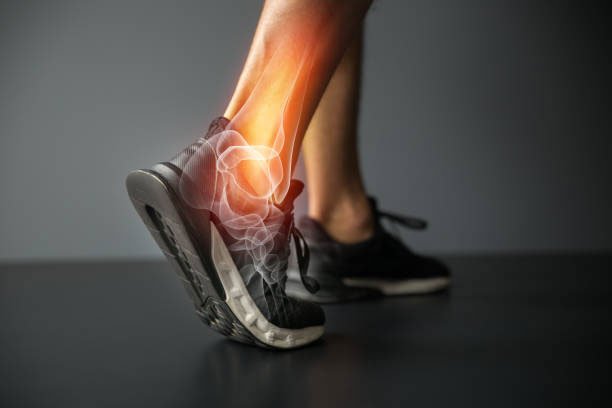What is Orthopedics?
Orthopedics is the medical specialty focusing on the diagnosis, treatment, prevention, and rehabilitation of disorders affecting the musculoskeletal system. This complex system includes bones, joints, ligaments, tendons, muscles, and nerves that enable movement and support the body. Orthopedic specialists address conditions ranging from congenital deformities to traumatic injuries and age-related degenerative diseases.
The field combines both surgical and nonsurgical approaches to restore mobility, reduce pain, and improve quality of life. Modern orthopedics emphasizes minimally invasive techniques and personalized treatment plans tailored to each patient's unique needs and lifestyle requirements.
Major Types of Orthopedic Treatments
Arthroscopy
Arthroscopy is a minimally invasive surgical procedure where surgeons insert a small camera (arthroscope) through tiny incisions to diagnose and treat joint problems. This advanced technique offers numerous benefits including reduced scarring, faster recovery times, and less postoperative pain compared to traditional open surgery.
Common arthroscopic procedures include meniscus repairs, ACL reconstruction, rotator cuff repairs, and cartilage restoration. The knee, shoulder, elbow, ankle, hip, and wrist are most frequently treated with arthroscopic techniques.
Joint Replacement
Joint replacement surgery involves removing damaged or diseased parts of a joint and replacing them with artificial components (prostheses). This procedure is typically recommended for patients with severe arthritis or joint damage that causes chronic pain and limits daily activities.
The most common joint replacements include total knee arthroplasty, total hip replacement, and shoulder replacement. Modern prosthetic joints can last 15-20 years or longer, significantly improving mobility and quality of life.
Deformity Corrections
Orthopedic surgeons correct various bone and joint deformities that may be present from birth (congenital) or develop over time (acquired). These procedures aim to improve function, relieve pain, and enhance appearance.
Common deformity corrections include scoliosis surgery, limb lengthening procedures, clubfoot treatment, and osteotomies to realign bones. Pediatric orthopedics specializes in treating growing children with musculoskeletal abnormalities.
Accidental & Trauma Injuries
Orthopedic trauma specialists manage fractures, dislocations, and soft tissue injuries resulting from accidents, falls, or violent impacts. Treatment may involve casting, external fixation, or internal fixation with plates, screws, or rods to stabilize fractures during healing.
Complex trauma cases often require multidisciplinary care involving orthopedic surgeons, physical therapists, and rehabilitation specialists to restore full function. Prompt treatment is crucial for optimal recovery from traumatic injuries.
Spine Surgeries
Spinal surgeries address various conditions affecting the vertebrae, discs, nerves, and supporting structures. These procedures range from minimally invasive discectomies to complex spinal fusions and deformity corrections.
Common indications for spine surgery include herniated discs, spinal stenosis, spondylolisthesis, and vertebral fractures. The goal is to relieve nerve compression, stabilize the spine, and reduce pain while preserving as much natural movement as possible.
Sports Injuries
Sports medicine focuses on preventing, diagnosing, and treating injuries related to athletic activities. Common sports injuries include tendon tears, stress fractures, ligament sprains, and muscle strains.
Treatment approaches emphasize restoring full function and strength to enable athletes to return to their sport. Rehabilitation programs are tailored to the specific demands of each sport and position played.
Benefits of Orthopedic Treatment
- Pain relief from chronic musculoskeletal conditions
- Improved mobility and range of motion
- Enhanced quality of life and independence
- Prevention of further joint damage
- Correction of deformities and improved posture
- Faster recovery from injuries
- Increased stability and reduced fall risk
- Better sleep due to reduced pain
- Improved ability to perform daily activities
- Long-term solutions for degenerative conditions
When to Visit an Orthopedic Specialist
Consult an orthopedic doctor if you experience any of the following symptoms persisting for more than a few days:
- Persistent joint or muscle pain
- Difficulty performing routine activities due to musculoskeletal discomfort
- Swelling, tenderness, or redness around a joint
- Noticeable decrease in range of motion
- Joint stiffness, especially after periods of inactivity
- Popping or crunching sensations during movement
- Instability or feeling that a joint might "give way"
- Deformities or unusual bumps on bones or joints
- Recovery from fractures or dislocations
- Sports injuries causing persistent symptoms
Frequently Asked Questions About Orthopedics
What's the difference between orthopedic surgery and physiotherapy?
Orthopedic surgery involves operative procedures to correct musculoskeletal problems, while physiotherapy uses exercises, manual therapy, and modalities to improve function. Many conditions benefit from a combination of both approaches.
How long does recovery take after joint replacement surgery?
Most patients resume light activities within 3-6 weeks, but full recovery with optimal strength and mobility typically takes 3-6 months. Complete integration of the implant and final results may take up to a year.
Are there age restrictions for orthopedic procedures?
There are no absolute age restrictions - treatment decisions are based on overall health, activity level, and specific condition rather than chronological age alone. Both pediatric and geriatric orthopedics are well-established subspecialties.
Can orthopedic conditions be prevented?
Many conditions can be prevented or delayed through maintaining healthy weight, regular exercise, proper nutrition, ergonomic adjustments, and injury prevention strategies. Early intervention for minor problems can prevent more serious issues.
What's the success rate of common orthopedic surgeries?
Success rates vary by procedure but generally exceed 90% for common operations like arthroscopic meniscus repair and total joint replacement when performed by experienced surgeons on appropriate candidates.
How do I know if I need surgery or if conservative treatment will work?
Your orthopedic specialist will evaluate your specific condition, symptoms, imaging results, and response to conservative measures before recommending surgery. Many conditions improve with nonsurgical approaches.
What's the difference between an orthopedist and a rheumatologist?
Orthopedists focus on structural problems and surgical treatments, while rheumatologists specialize in medical management of inflammatory and autoimmune joint diseases like rheumatoid arthritis.
How often should I have follow-up after orthopedic treatment?
Follow-up frequency depends on the condition and treatment. Postoperative care typically involves several visits in the first year, while chronic conditions may require annual monitoring. Your doctor will recommend an appropriate schedule.
What makes Aswini Hospital stand out for orthopedic care in Tenali?
Aswini Hospital has established itself as a leading center for orthopedic excellence in the Tenali region through its comprehensive approach to musculoskeletal care, experienced specialists, and patient-centered philosophy.
Aswini Hospital: Premier Orthopedic Center in Tenali
Aswini Hospital has earned recognition as one of Tenali's most trusted destinations for orthopedic treatment through consistent delivery of high-quality care and positive patient outcomes. The hospital's orthopedic department combines clinical expertise with compassionate care to address the full spectrum of musculoskeletal conditions.
Patients choose Aswini Hospital for its personalized approach to treatment planning, focus on minimally invasive techniques when appropriate, and comprehensive rehabilitation services. The facility maintains high standards of sterilization and infection control to ensure patient safety.
Dr. Vanga Madhukar Reddy: Leading Orthopedic Specialist in Tenali
Dr. Vanga Madhukar Reddy brings extensive experience and specialized training to his orthopedic practice at Aswini Hospital. With a focus on evidence-based medicine and surgical precision, Dr. Reddy has helped numerous patients regain mobility and overcome pain.
His areas of particular expertise include joint preservation techniques, complex trauma management, and advanced arthroscopic procedures. Patients appreciate Dr. Reddy's thorough explanations, attentive listening, and commitment to exploring all treatment options before recommending surgery.
As a respected member of Tenali's medical community, Dr. Reddy maintains active involvement in professional education and stays current with the latest developments in orthopedic care to provide his patients with the most effective treatment options available.
Orthopedic care plays a vital role in maintaining mobility and quality of life at all ages. From sports injuries to arthritis management and trauma care, timely intervention by skilled orthopedic specialists can make a profound difference in patient outcomes. Aswini Hospital and Dr. Vanga Madhukar Reddy represent the highest standard of orthopedic care in the Tenali region, offering comprehensive solutions tailored to each patient's unique needs and goals.
Whether you're experiencing acute joint pain, recovering from an injury, or considering elective joint replacement, consulting with an experienced orthopedic specialist can help you make informed decisions about your musculoskeletal health and treatment options.

